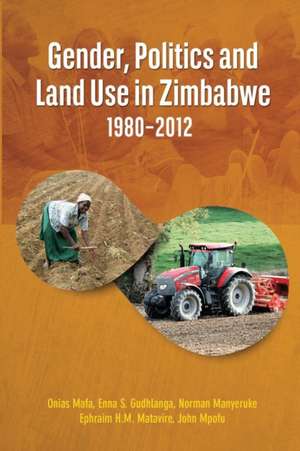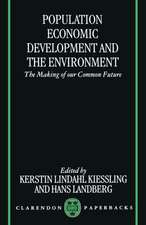Gender, Politics and Land Use in Zimbabwe 1980-2012
Autor Onias Mafa, Enna S. Gudhlanga, Norman Manyerukeen Limba Engleză Paperback – 18 oct 2015
Preț: 325.62 lei
Nou
Puncte Express: 488
Preț estimativ în valută:
62.31€ • 65.23$ • 51.56£
62.31€ • 65.23$ • 51.56£
Carte tipărită la comandă
Livrare economică 05-19 aprilie
Preluare comenzi: 021 569.72.76
Specificații
ISBN-13: 9782869785908
ISBN-10: 2869785909
Pagini: 252
Dimensiuni: 156 x 234 x 13 mm
Greutate: 0.36 kg
Editura: Codesria
ISBN-10: 2869785909
Pagini: 252
Dimensiuni: 156 x 234 x 13 mm
Greutate: 0.36 kg
Editura: Codesria















